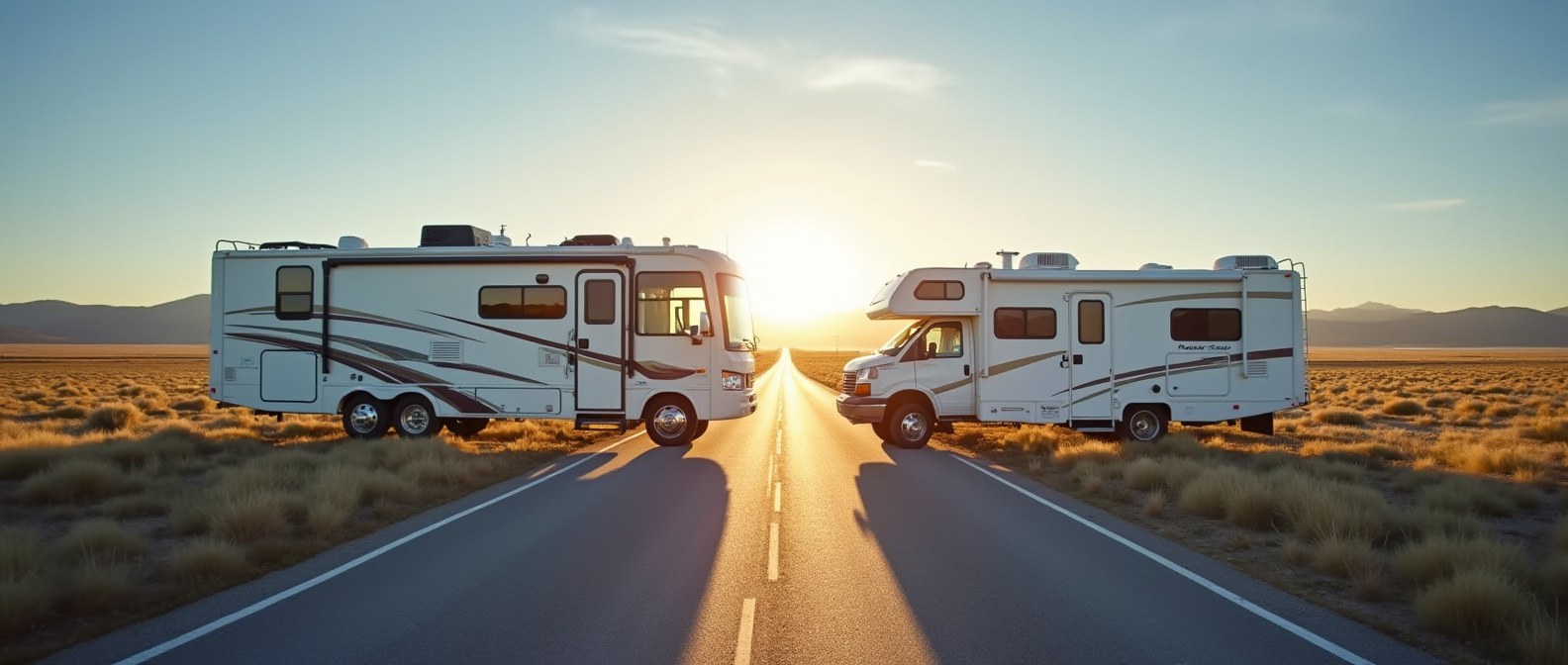Independent RV Dealers: Competing With National Retailers and Consolidators
The recreational vehicle (RV) industry has seen rapid growth and transformation in recent years. The COVID-19 pandemic, changing consumer preferences, and the lure of nomadic lifestyles have fueled a surge in RV sales. However, with growth comes increased competition, and independent RV dealers now face formidable challenges from national retailers and consolidators. To stay competitive, local dealers must adapt by focusing on personalized service, leveraging technology, and building strong community ties.
The Rise of National Retailers and Consolidators
National RV retailers and consolidators have gained significant traction in the RV market, leveraging their size, scale, and resources. These entities often have:
- Massive Inventory: National retailers boast extensive inventories, enabling them to offer a wide variety of RVs to meet diverse customer needs.
- Streamlined Pricing: Bulk purchasing power allows these giants to negotiate better deals with manufacturers, which translates to competitive pricing for consumers.
- Marketing Muscle: National retailers invest heavily in advertising and brand recognition, capturing attention in a crowded marketplace.
- Standardized Operations: Consolidators, who acquire independent dealerships and operate them under a unified brand, implement standardized systems for sales, service, and customer experience.
Challenges Faced by Independent Dealers
Independent RV dealers must grapple with these competitive advantages while operating with fewer resources. Key challenges include:
- Price Competition: Large retailers can often undercut smaller dealers on pricing.
- Inventory Access: Independents may struggle to maintain a diverse stock of RVs, especially during periods of high demand.
- Brand Recognition: Competing against national advertising campaigns can make it harder for local dealers to stand out.
- Consolidation Pressure: Some dealers face offers to sell out to consolidators, which can erode the diversity of the market.
Strategies for Independent Dealers to Compete
While the playing field may not be level, independent RV dealers have several unique strengths they can leverage to stay competitive:
- Emphasize Local Expertise and Personalization
Independent dealers are often deeply embedded in their communities, giving them a competitive edge in building trust and relationships. They can offer:
- Tailored Recommendations: Knowledge of local camping spots and RV needs.
- Customer-Centric Service: Personalized attention that national chains may struggle to replicate.
- Focus on After-Sales Service
Strong after-sales support is a critical factor for RV buyers. Independent dealers can prioritize:
- Rapid Repairs: Minimizing downtime for customers.
- Service Packages: Offering maintenance plans to build long-term loyalty.
- Utilize Technology
Digital tools can level the playing field by improving operational efficiency and marketing reach. Strategies include:
- Online Inventory Listings: Allowing customers to browse RVs online.
- Social Media Engagement: Using platforms like Instagram, Facebook, and TikTok to showcase inventory and connect with younger buyers.
- Virtual Showrooms: Offering virtual tours to attract tech-savvy customers.
- Build Community and Brand Loyalty
Local events, sponsorships, and partnerships can help dealers strengthen ties to their communities. Hosting RV shows, workshops, or camping trips fosters engagement and builds loyalty.
- Differentiate Through Niche Markets
Specializing in niche RV categories—such as vintage models, eco-friendly RVs, or compact campers—can help dealers carve out a unique position in the market.
Conclusion
The competition from national RV retailers and consolidators is fierce, but it’s not insurmountable. Independent RV dealers have a rich arsenal of strategies at their disposal, from personalized service to leveraging local expertise. By staying agile, embracing technology, and focusing on community connections, these dealers can thrive in a competitive marketplace while preserving the diversity and vibrancy of the RV industry.
The road ahead may be challenging, but for those who adapt and innovate, the journey promises rewarding destinations.




 Roger L. Nuttall served as President of Camping World, Inc. from January 2011. Prior to that, he was the Chief Operating Officer of FreedomRoads, LLC from January 2009 to January 2011, and the Executive Vice President and Chief Financial Officer of FreedomRoads, LLC from November 2003 to December 2015. From 1981 to 1983, Mr. Nuttall was a partner at McKay, Nuttall, and Reid, an accounting and consulting firm. Before that, he held various staff and management positions at Grant Thornton LLP from 1974 to 1981. From 1983 to 2003, Mr. Nuttall served as Chief Financial Officer and board member of Blaine Jensen & Sons, Inc., a multi-dealership RV company. He received a B.A. from Weber State University.
Roger L. Nuttall served as President of Camping World, Inc. from January 2011. Prior to that, he was the Chief Operating Officer of FreedomRoads, LLC from January 2009 to January 2011, and the Executive Vice President and Chief Financial Officer of FreedomRoads, LLC from November 2003 to December 2015. From 1981 to 1983, Mr. Nuttall was a partner at McKay, Nuttall, and Reid, an accounting and consulting firm. Before that, he held various staff and management positions at Grant Thornton LLP from 1974 to 1981. From 1983 to 2003, Mr. Nuttall served as Chief Financial Officer and board member of Blaine Jensen & Sons, Inc., a multi-dealership RV company. He received a B.A. from Weber State University. Mike has almost 30 years’ experience in the Recreational Vehicle (RV) Industry and provides advisory and consulting services to clients within that industry.
Mike has almost 30 years’ experience in the Recreational Vehicle (RV) Industry and provides advisory and consulting services to clients within that industry. Scott Degnan is the Partner and Co-founder of RV Business Solutions and President of Degnan Management Group, Inc., a consulting firm.
Scott Degnan is the Partner and Co-founder of RV Business Solutions and President of Degnan Management Group, Inc., a consulting firm. Dom Bookman is the Chief Operating Officer and Investor Relations lead at RV Business Solutions. With 12 years of experience in the tech industry, Dom is a serial entrepreneur specializing in business development, marketing, and growth strategies for leading brands. He has successfully piloted startups and facilitated multiple exits for early-stage companies.
Dom Bookman is the Chief Operating Officer and Investor Relations lead at RV Business Solutions. With 12 years of experience in the tech industry, Dom is a serial entrepreneur specializing in business development, marketing, and growth strategies for leading brands. He has successfully piloted startups and facilitated multiple exits for early-stage companies.